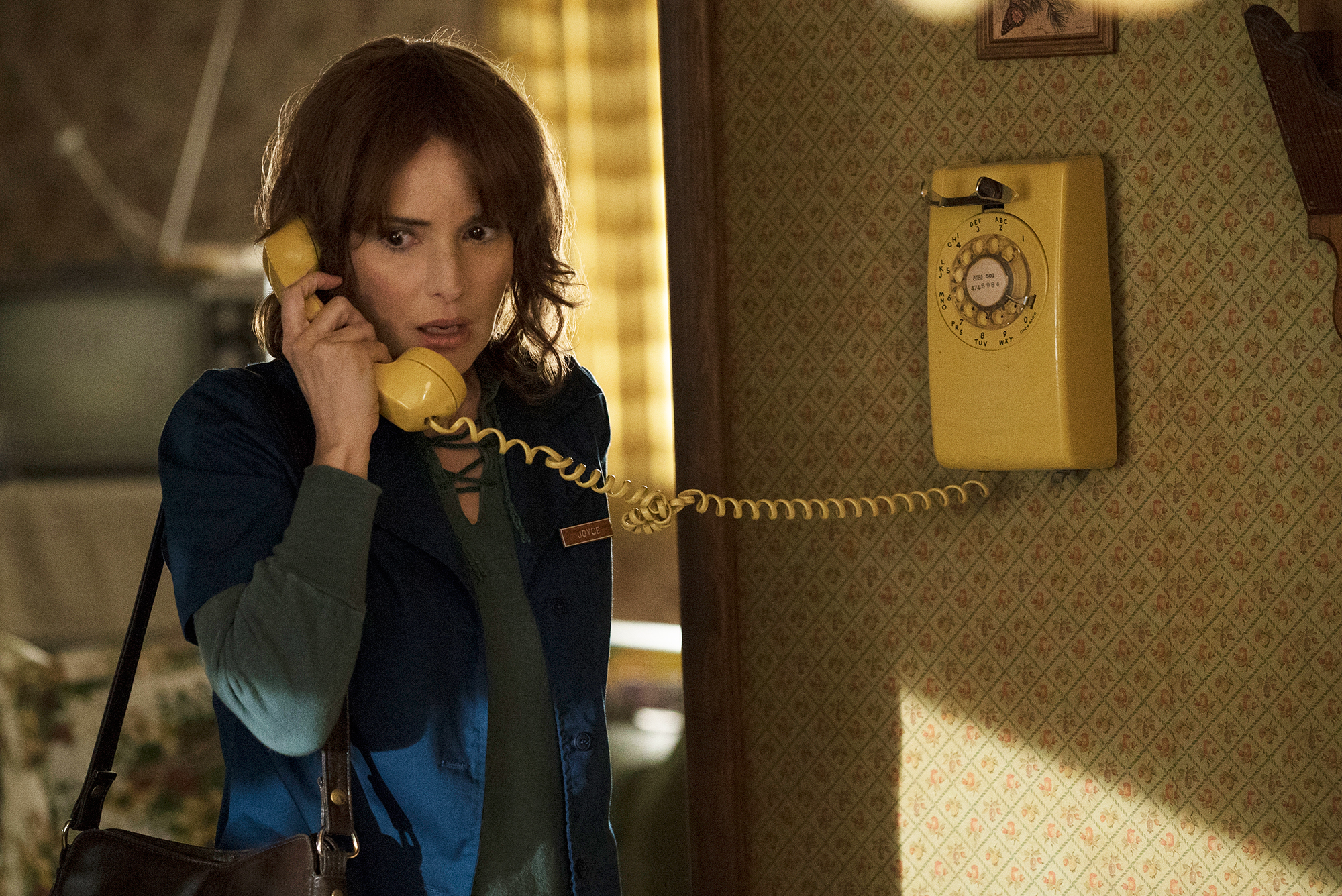
Over the past year or so, television has fallen prey to the sort of nostalgia fever that’s just about run out of gas at the movies. This year, reboots of The X-Files and Full House were at least zeitgeist hits (Netflix, which streamed Fuller House, does not provide viewership numbers); upcoming chapters of 24 and Prison Break hope to repeat their success.
There are limits to this sort of storytelling, and not merely the artistic limits imposed by taking one’s cues from artworks rooted in a different time; as poor box-office results for sequels to Neighbors, Now You See Me, and Snow White and the Huntsman this year prove, there’s only so much of yesterday’s news that viewers can be expected to consume.
Which should augur poorly for Stranger Things, Netflix’s new series (streaming Friday) that explicitly takes its cues from 1980s family thrillers like E.T., Gremlins, and Poltergeist. The show’s tone, giddily indulgent of both small-town cliché and monster-serial oddity, is so backward-looking that, on first blush, it’s hard to imagine how the show could succeed, artistically or commercially, in our more ironic age. And yet Stranger Things is an unqualified success—a show whose fondness for its own source material makes its nostalgia warm and inclusive. It isn’t using familiar tropes to demand your money or your attention. It’s welcoming you into a fan club.
The story of Stranger Things is both derivative—a reference-laden vehicle to deliver thrills and emotion—and wildly original. It’d be unfair to reveal too much that happens in the show’s eight-episode run, but the basics include a disappeared young boy named Will and the attempts of his Dungeons and Dragons buddies to locate him in concert with a mysterious girl whose telekinetic powers might have something to do with the nearby military facility (and its top baddie, played by Matthew Modine), and with the entity that snatched Will. The backdrop to it all is the slow decompensation of Will’s mother as she attempts to find her son, alternately by law enforcement or by communing with the spectral realm.
Winona Ryder, as the bereaved mother whose display of Christmas lights, she just knows, is giving her Morse-code clues to her son’s whereabouts, is magnificent. This is precisely the role the definitive 1990s movie star needed to transition into artistry as an adult. In many of her movie roles, from Edward Scissorhands to Heathers, Ryder reacts to bizarre situations with a sense of ironic, chill acceptance. Here amid a sea of kids who’d believe anything and government officials who know exactly what’s going on, she’s our one tether to rational thinking—she knows it doesn’t make sense that the Christmas lights would have a message for her, but also knows that it doesn’t make sense not to pay attention. The contradictions force her to gradually fray and come undone, and Ryder is up to the challenge.
Ryder provides the realism, but the rest of Stranger Things is faked with loving care. There’s a teen romance subplot, and a neighborhood mom who just wants to know what her son is getting up to; there’s, notably, a town sheriff (David Harbour) who knows all the contours of Ryder’s story and is all too willing to help. These details are tied to place in an everytown sense. The story takes place in “Hawkins, Indiana,” a placeholder that provides the sort of small-town hominess against which imaginative terror pops all the more.
I’m not a scholar of Goonies-era cinema, so surely there’s an entire layer of references and Easter eggs that didn’t find their perfect audience in me. But that’s okay. The nostalgic tone of Stranger Things succeeds less from discrete moment to moment than as an overall ambience; in synthy music, vivid shooting style, and deeply earnest performances, the show is committed to selling you a sort of story that doesn’t exist in mainstream pop culture anymore. It’s not exhuming a property—it’s reviving a way of seeing the world, as one of good friends and loving parents along with wicked government agents, full of possible demons and opportunities for true heroism. I’d go back there anytime.
More Must-Reads From TIME
- The 100 Most Influential People of 2024
- Coco Gauff Is Playing for Herself Now
- Scenes From Pro-Palestinian Encampments Across U.S. Universities
- 6 Compliments That Land Every Time
- If You're Dating Right Now , You're Brave: Column
- The AI That Could Heal a Divided Internet
- Fallout Is a Brilliant Model for the Future of Video Game Adaptations
- Want Weekly Recs on What to Watch, Read, and More? Sign Up for Worth Your Time
Contact us at letters@time.com